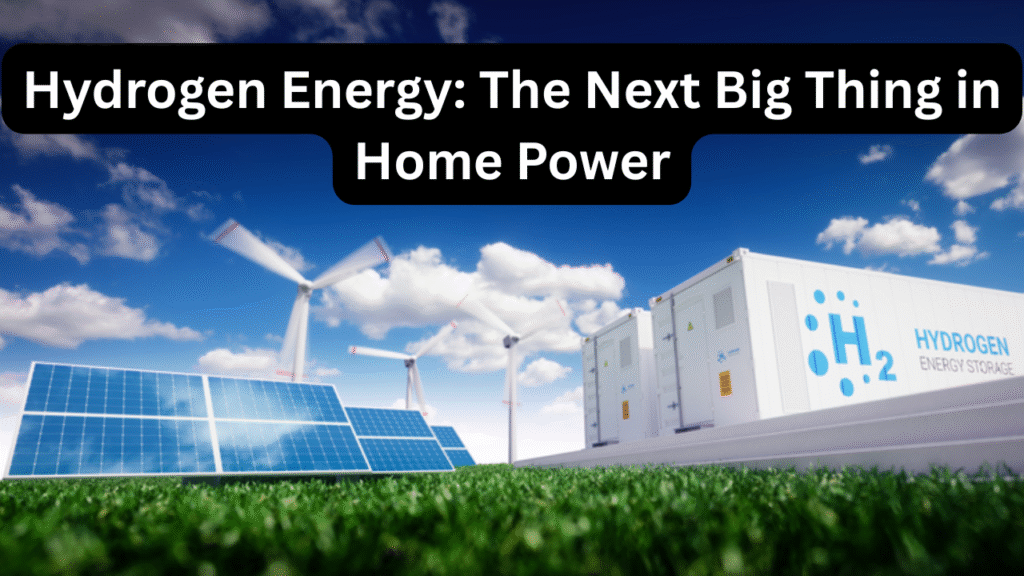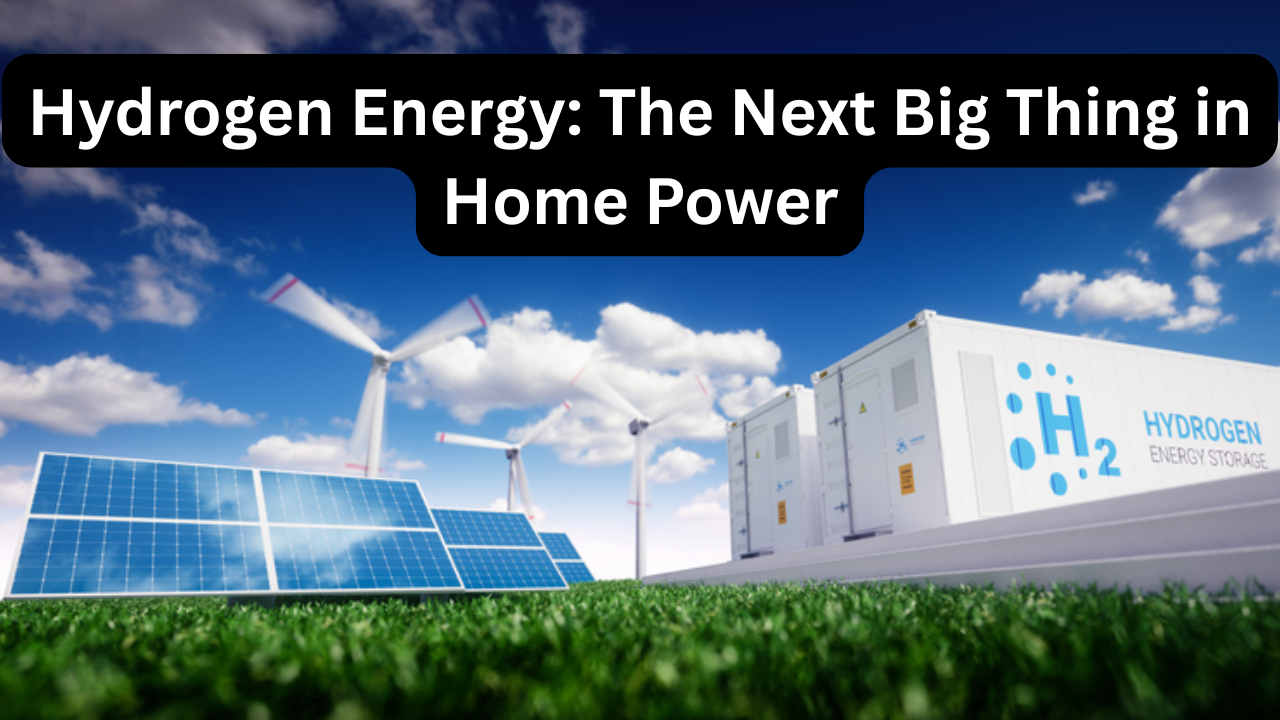
As the world searches for cleaner and more sustainable energy sources, hydrogen energy is emerging as a promising solution for residential power. Hydrogen can be used to generate electricity, heat, and even fuel vehicles—all with minimal environmental impact. While still in the early stages of widespread adoption, hydrogen technology has the potential to transform how homes are powered, offering a renewable and efficient alternative to traditional fossil fuels.
What Is Hydrogen Energy?
Hydrogen energy is produced by using hydrogen gas as a fuel. When hydrogen reacts with oxygen in a fuel cell, it generates electricity, water, and heat. This process emits no greenhouse gases, making it a highly sustainable energy source.
Key Components for Home Use:
- Hydrogen Fuel Cells: Convert hydrogen into electricity and heat.
- Hydrogen Storage Tanks: Store hydrogen safely on-site.
- Electrolyzers: Produce hydrogen from water using electricity, ideally from renewable sources.
- Power Management Systems: Distribute electricity efficiently throughout the home.
How Hydrogen Energy Works in Homes
- Hydrogen Production: Hydrogen can be produced through electrolysis using renewable electricity from solar panels or wind turbines.
- Storage: The hydrogen is stored in pressurized tanks for later use.
- Energy Conversion: A fuel cell converts the stored hydrogen into electricity and heat for home appliances and heating systems.
- Byproduct: The only byproduct is water, which can be safely released or reused.
This cycle allows homes to operate independently from the grid, increasing energy security while reducing carbon emissions.
Advantages of Hydrogen Energy for Residential Use
- Zero Carbon Emissions: Only water and heat are produced during energy generation.
- Energy Independence: Hydrogen storage allows homes to operate off-grid or during blackouts.
- High Efficiency: Fuel cells can convert up to 60% of hydrogen’s energy into electricity, with additional heat used for domestic purposes.
- Integration with Renewable Energy: Surplus solar or wind power can be stored as hydrogen for later use.
- Scalability: Systems can be sized according to energy needs, from small homes to larger residential complexes.
Challenges and Considerations
- High Upfront Costs: Hydrogen fuel cells and storage systems remain expensive compared to traditional HVAC or electric systems.
- Infrastructure Needs: Delivery and production systems are not yet widely available in residential areas.
- Safety Concerns: Hydrogen is highly flammable, requiring strict safety measures and professional installation.
- Efficiency Loss in Production: Converting electricity to hydrogen (via electrolysis) and back to electricity incurs some energy losses.
Cost & Lifespan Estimates
| Component | Average Cost (USD) | Lifespan | Key Notes |
|---|---|---|---|
| Residential Fuel Cell | $15,000–$25,000 | 10–15 years | Provides electricity & heat |
| Hydrogen Storage Tank | $5,000–$10,000 | 20–30 years | High-pressure, safe storage |
| Electrolyzer | $10,000–$20,000 | 10–15 years | Converts renewable electricity to hydrogen |
| Installation Labor | $5,000–$10,000 | N/A | Professional installation required |
| Total System Cost | $35,000–$65,000 | N/A | Varies based on home energy needs |
Ideal Homes for Hydrogen Energy Systems
- Homes with Renewable Generation: Solar or wind systems can produce surplus electricity for hydrogen production.
- Remote Locations: Off-grid or rural homes can benefit from energy independence.
- Environmentally Conscious Homeowners: Ideal for those aiming for net-zero carbon emissions.
- High Energy Demand: Larger households or homes with significant heating needs benefit most from scalability.
Environmental Impact
Hydrogen energy has the potential to dramatically reduce greenhouse gas emissions in residential areas. Unlike gas heating or grid electricity from fossil fuels, hydrogen systems emit no CO₂ during operation. When combined with renewable electricity for hydrogen production, the process becomes nearly carbon-neutral, contributing to a sustainable energy future.
Overview Table
| Feature | Description | Benefit to Homeowner |
|---|---|---|
| Zero Emissions | Produces electricity & heat with only water | Sustainable, eco-friendly |
| Renewable Integration | Uses solar/wind for hydrogen production | Maximizes clean energy use |
| Energy Independence | Stored hydrogen allows off-grid operation | Reliable power supply |
| High Efficiency | Up to 60% electrical conversion + heat | Reduced energy waste |
| Scalability | Systems can be sized to home needs | Flexible for different households |
| Long-Term Potential | Technology improving rapidly | Investment in future energy |
Conclusion
Hydrogen energy is emerging as a promising solution for sustainable residential power. While costs and infrastructure challenges remain, the environmental and efficiency benefits make it a technology worth considering for forward-thinking homeowners. As renewable energy adoption grows, hydrogen can serve as a storage medium, backup power source, and primary heating solution, offering a glimpse into the future of clean, independent energy.
3 Quick FAQs
- Can hydrogen energy be used in off-grid homes?
Yes, stored hydrogen allows homes to operate independently from the grid. - Is hydrogen safe to use in residential areas?
Yes, with proper storage, installation, and professional oversight, hydrogen systems are safe. - Can hydrogen be paired with solar or wind energy?
Absolutely—renewable electricity can produce hydrogen for later use, maximizing efficiency and sustainability.

